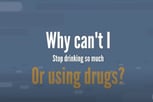After several months (or years) of therapy, you are now handling daily life on your own. Feelings of accomplishment and joy may be connected to this milestone but it’s normal to also feel a bit of trepidation. There is the fear of being untethered to something that may have become a safety net or foundation of security for yourself.
All these emotions are understandable. Change is never easy, especially for recovering addicts. The best advice to living a sober life after therapy is to make every effort to relax and not panic. By finding the courage to “fly on your own” you are gaining so much more than you are losing. As your independence grows, you will achieve increased confidence, independence, trust and self-reliance.
Here are 4 tips to help you better navigate this new chapter after therapy.
1. Plan Ahead
Addiction is a disease. And just like any other disease, the illness has to be managed one day at a time. Structure is your best friend in the early days after therapy ends. A schedule should not be viewed as a prison but a path to success.
There is a lot to deal with on your own and it’s expected that you may feel a bit overwhelmed after therapy. To keep it simple, don’t overschedule your days and evenings. Put pen to paper and actually list out your activities day by day or even hour by hour, if that helps).
It may seem bizarre to acknowledge the need for a specific schedule, but a daily plan is a fundamental component on the path to success. Just as you would take medicine for a disease at pre-designated times, it is beneficial for you to know what kind of events to expect in your day post-therapy.
2. Go to Support Meetings
Now is the time to remember one of Alcoholics Anonymous’ most vital acronyms: HALT. This goes with the rule, “Never allow yourself to become hungry, angry, lonely or tired.”
One way of doing this is upholding a continuous and consistent attendance at 12-Step meetings because simply put, they work. These meetings provide an environment without judgment and are free and easily accessible in every city and every country.
By attending meetings frequently, you will gain strength knowing a group of people is experiencing the same emotions and challenges. Addiction can be an isolating disease, which can be especially amplified after therapy.
3. Exercise and Breathe
Exercise and meditation are powerful tools in recovery. They encourage the body to naturally experience better sleep, instill a desire for healthy foods, promote a positive outlook and help create a leaner body—all of which enhances sober living.
A regular exercise regimen helps with physical and psychological stress, which is common after leaving therapy. It plays a significant role in improved self-confidence as well.
As for meditation, countless studies demonstrate that the practice of meditation quiets the mind, allowing for enhanced focus, mental clarity and even a surge in happiness if done regularly. Whether it is through a YouTube video, a class at the gym or acting on your own, including meditation in your daily routine provides a myriad of benefits.
With these two activities under your belt, life after therapy will be much easier to manage.
4. Give Back
A study conducted by the Alcohol Research Group examined whether clients in treatment for alcohol and drug problems benefited from helping others who are also in addiction programs. It was discovered that “helping others achieve sobriety reduced the risk that recovering drinkers would binge drink.” The individuals who decided to disclose their struggles and experiences in an attempt to support others in similar situations found an added purpose for their sobriety. By focusing on others, they worked more vigorously to maintain their recovery.
Giving back does not necessarily even need to be addiction-related. In fact, many individuals find it too uncomfortable to mentor other addicts. Instead, they volunteer at food banks, cancer centers, and countless other causes. Doing so will allow you to see for yourself how helping others truly is just another way to help yourself, especially during your period of transition.
If you or someone you know is seeking help for addiction, please visit our directory of treatment centers or call 800-772-8219 to start the road to recovery.








